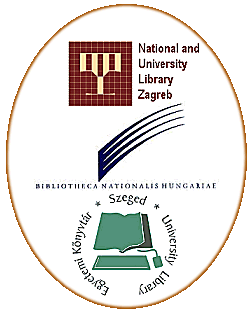

Reconstruction
of Miklós Zrínyi's Library by VRML
Budapest
- Szeged - Zagreb * 2001-2002
© Web: Károly Kokas, 2003
Our computerized databank concerning the history of reading in seventeenth-century Hungary (the Carpathian basin) has been completed recently, after a period of more than twenty years of gestation, data collection and processing. The project Bibliotheca Eruditionis was realized with the financial backing of the Hungarian Ministry of Education, as part of a programme IKTA, and as a result of a long-term cooperation between the National Széchényi Library and the Library of the University of Szeged.
A
constituent part of the project covering thousands of Hungarian library
collections of a bygone age, no longer in existence in their original
state, and what we have found to be of great interest, was the attempt
to reconstruct in cyberspace in 3D - by way of example, to demonstrate
the various possibilities offered to the researcher by this modern advanced
technology - one of the libraries of the past, no longer existing in its
original seventeenth-century state, in order to be able to "walk"
all over the place, between the bookcases and to get a glimpse of what
the rows of books might have seemed to comtemporary "library users",
and to be able to understand the kind of impresssion the sight of this
extensive collection might have made on them. We decided to reconstruct
the collection of Miklós Zrínyi, the famous poet,
statesman and military commander in its original state, placed in its
original setting. The reasons of our decision were complex, because this
seventeenth-century collection containing about six hundred volumes is
rather imposing in its own right, but what is even more important is that
most of the original volumes can still be seen in the National
and University Library of Zagreb as a special collection [and we also
have contemporary reports and even book lists in our possesssion to help
us].
Therefore
the virtual reconstruction of the Library as part of the project Bibliotheca
Eruditionis was made with the participation of our Croatian colleagues
for whose valuable assistance we would like to express our sincere thanks.
The digital reconstruction is based on a monograph about Miklós Zrínyi's library published as part of the series "Bibliotheca Zriniana", and we wish to express our thanks for the permission to adapt some sections of the text.
Conception: Károly
Kokas, István Monok
Photography: Károly Kokas, Zoltán Aranyi
VRML programme/programming: Gábor
Csáki